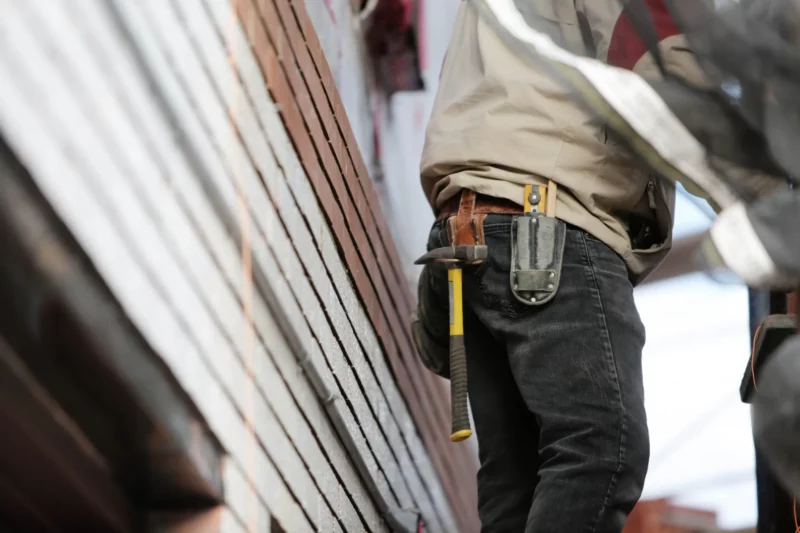Report: Black apprentices are being underrepresented and underpaid
Share
Explore Our Galleries
Breaking News!
Today's news and culture by Black and other reporters in the Black and mainstream media.
Ways to Support ABHM?
By Jada Simon, New York Amsterdam News

The Joint Center for Political and Economic Studies releases their report “Five Charts To Understand Black Registered Apprentices in the United States” entailing the kind of treatment Black apprentices face in America.
According to the report, Black apprentices are both underpaid in comparison to their counterparts and underrepresented within registered programs. This is proven by the five main points highlighted by the report: Black apprentices have the lowest likelihood of completing apprenticeship programs, are mostly concentrated in the South where there are loose labor standards, see unfair wages in the construction field, earn the lowest wages in comparison to their counterparts and are the most underrepresented throughout all apprenticeship programs.
“Apprenticeships provide critical pathways for workers to land good jobs where they can build unique skills and make a fair wage to provide for their families”, said Justin Nalley, senior policy analyst of the Joint Center’s Workforce Policy Program. “Unfortunately, like many federal programs in our nation’s history, Black workers have been blocked from unlocking the full potential of apprenticeship programs.”
According to the report, Black apprentices make up roughly 12.3% of the workforce but only occupy 9% of apprenticeship programs and have a completion rate of 41% in comparison to their peers of other races- “47 percent for Hispanic apprentices, 48 percent for white and Native American apprentices, and 49 percent for Asian and Pacific Islander (AAPI) apprentices.”
Also, Black apprentices tend to leave programs with a wage of $25 per hour while their peers exit at $26 per hour as a Hispanic apprentice, $28 per hour as a white apprentice, or $30 per hour as an Asian and Pacific Islander apprentice. Black apprentices are also excluded from supervisorial and managerial positions where they face constant discrimination being placed in Southern states where they can only earn 64 cents on the dollar and work under weak labor standards.
Read about the proposals for addressing these issues.
Black Americans have struggled to join trades, in part due to unions.
More breaking news here.











Comments Are Welcome
Note: We moderate submissions in order to create a space for meaningful dialogue, a space where museum visitors – adults and youth –– can exchange informed, thoughtful, and relevant comments that add value to our exhibits.
Racial slurs, personal attacks, obscenity, profanity, and SHOUTING do not meet the above standard. Such comments are posted in the exhibit Hateful Speech. Commercial promotions, impersonations, and incoherent comments likewise fail to meet our goals, so will not be posted. Submissions longer than 120 words will be shortened.
See our full Comments Policy here.